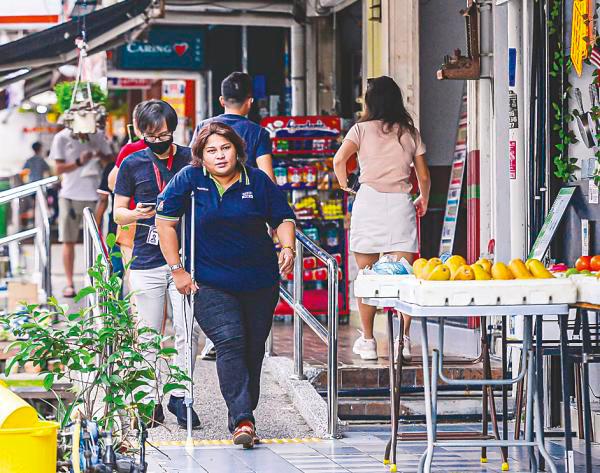PETALING JAYA: Some 75% of public facilities in Malaysia are not disabled-friendly compared with Singapore, that has over 95% of pedestrian walkways, taxi stands and bus stops accessible to wheelchair users, senior citizens and people with disabilities (PwD).
Petaling Jaya (PJ) Zone 6 city councillor Sakinah Bibi Nagoor said there is still a lot of work to be done before Malaysia can be called a disabled-friendly nation.
However, all is not lost. The council has launched numerous initiatives to transform the city in the near future into one that is disabled-friendly.
“All PwD deserve to be mobile and to move about just as comfortably as everyone else,” Sakinah told theSun, adding that she understands the challenges as she has a walking disability herself.
Sakinah began with initiatives in Taman Megah, which is within her zone. Today, it is possibly one of the most disabled-friendly locations in the city.
“Many public facilities in Taman Megah have been upgraded to meet the requirements of the Universal Design and Accessibility in the Built Environment – Code of Practice (CoP).
“More than 600 projects have also been inspected since 2015 in line with CoP. About 20% of them have been upgraded and issued with a Certificate of Completion and Compliance (CCC).”
She said buildings and facilities maintained by the council have been undergoing upgrades since 2000 to fulfil requirements to be certified as disabled-friendly, such as the council headquarters, wet markets, swimming pools, sports centres, community halls and public toilets.
Sakinah added that many other structures, especially those with reported shortcomings, have upgrades pending to enhance accessibility.
“These include bus stops, food courts, public recreational parks and surau.
“We also have an ongoing project to upgrade commercial areas. The target is to complete two commercial areas each year.”
She said efforts are being made to raise awareness among businesses, policymakers and the public on the importance of better accessibility.
“The council has conducted CoP workshops and audit sessions since 2000. Many professionals have spoken on the importance of accessibility for the disabled.
“We conducted surveys to obtain feedback from senior citizens and the disabled, including those using crutches, are wheelchair-bound and visually-impaired.”
Sakinah said several disabled councillors have contributed to policymaking decisions since 2008, adding that the council regularly assesses public premises to ensure accessibility standards are met.
“As a condition of approval, all new buildings and developments must obtain a supporting letter confirming they are CoP compliant. Site visits and universal design audits will also be conducted before the CCC is issued to the developer.”
She said the council has a long-term goal to modernise the city, in line with the PJ Smart, Sustainable and Resilient 2030 blueprint, which targets for all commercial areas to be accessible to PwD and declared CoP certified.
“All new developments and buildings, both council assets and privately-owned ones, are to be compliant with CoP.”









